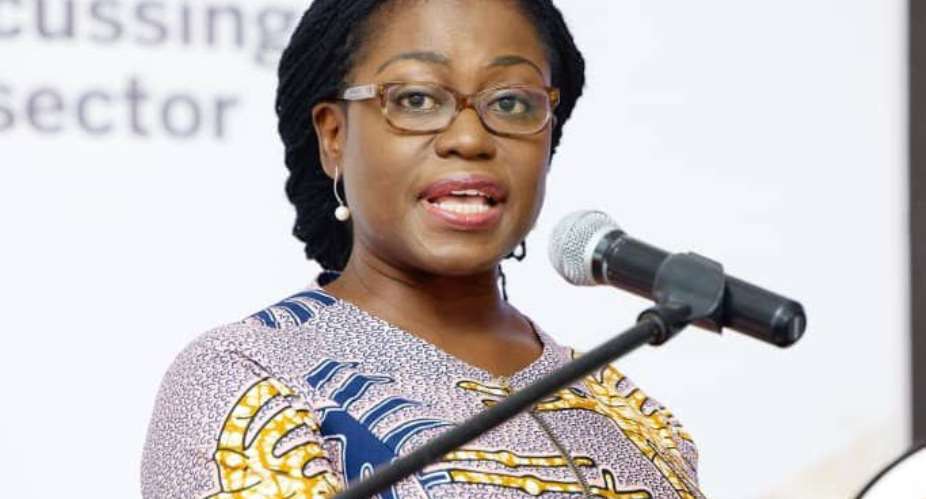Madam Elsie Addo Awadzi, the Second Deputy Governor of the Bank of Ghana (BOG) says that a boost in Africa's long-term competitiveness on the global market will depend on financing for robust macro-economic recovery and medium to long term investment.
However, financing, she said, had remained a big challenge as the estimated financing gap for Africa was about $285 billion in additional funding that would be required from 2021 to 2025 to effectively respond to the effect of the pandemic.
“This financing gap will require tough reforms such as mobilising additional domestic revenue through taxes and other non-tax revenues, enhancing the efficiency of public spending for health and related sectors and strengthening the financial systems of the region,” she said.
Speaking at the Money Summit under the theme, “Africa's Economic Growth: Facilitating Investment, Payment and Settlement Systems,” Mrs Awadzi said that improving governance and the business environment was key for promoting investment climate that would attract the needed capital flow.
She, therefore, called for bold steps to harness strategic opportunities that would help economic recovery efforts on the continent.
Those steps, she mentioned, would require intensifying effort at regional trade and harnessing the potential of the youthful population, which she described as a great asset for socio economic future.
She added that increasing trade volume in the AfCFTA market would mainly be driven by the large investment needed to expand production and processing capacity in key value chains and infrastructure that would support logistics in terms of delivery of goods and services as well as payments.
“With trading under the region having commenced in January 2021, concrete steps need to be taken to expand production, delivery, and payment channels to promote regional trade, investment, and growth.
“Technology can serve as an efficiency input in the development of payment and settlement systems and in respect to our economy by virtue of efforts to formalise and digitise economic activities away from the informal sector to the formal sector,” she said.
The Second Dputy Governor said that digitisation would make it easy for harnessing and tracking transactions on the regional market through the centralised Pan African Payment and Settlement System (PAPPS) designed by the AfroEximbank to lower cost and accelerate transactions.
Dr Settor Amediku, Head of Payment Systems, BoG, said other payment systems relied on corresponding banks outside the continent, which also operated using currencies outside the continent.
Aside increasing the demand for foreign currencies, the rigidities, and complexities of such systems, he said, tended to deprive the continent of the needed independence to manage its financial systems and at times had countries suffering from harsh sanctions from the foreign countries.
“Another problem is we have fragmented payment systems, and our payment systems are not linked,” he noted.
Ms Monica Oraro, Head of Product and Business Development, PAPSS, said that “ultimately countries will be more reliant on their local currency, and we will be beefing up their reserves.”
GNA





 Avoid pre-registered SIMs, buyer and seller liable for prosecution – Ursula Owus...
Avoid pre-registered SIMs, buyer and seller liable for prosecution – Ursula Owus...
 Election 2024: Mahama has nothing new to offer Ghanaians, Bawumia is the future ...
Election 2024: Mahama has nothing new to offer Ghanaians, Bawumia is the future ...
 OSP files fresh charges against ex- PPA Boss
OSP files fresh charges against ex- PPA Boss
 Withdraw unreasonable GH¢5.8m fine against former board members – ECG tells PURC
Withdraw unreasonable GH¢5.8m fine against former board members – ECG tells PURC
 Akroma mine attack: Over 20 armed robbers injure workers, steal gold at Esaase
Akroma mine attack: Over 20 armed robbers injure workers, steal gold at Esaase
 Those who understand me have embraced hope for the future — Cheddar
Those who understand me have embraced hope for the future — Cheddar
 Ghana will make maiden voyage into space should Bawumia become President — Chair...
Ghana will make maiden voyage into space should Bawumia become President — Chair...
 Train crash: Despite the sabotage, we shall not be deterred and will persevere —...
Train crash: Despite the sabotage, we shall not be deterred and will persevere —...
 Tema-Mpakadan railway project a perversion of the original viable concept design...
Tema-Mpakadan railway project a perversion of the original viable concept design...
 Train crash: Elsewhere, everyone involved in the test will either be fired or re...
Train crash: Elsewhere, everyone involved in the test will either be fired or re...
